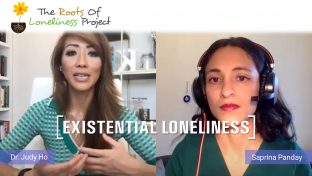Intellectual Loneliness: Despite High IQ Or EQ You Still Feel Alone

Although being intelligent — both in a traditional sense and an emotional one — can make life easier in many ways, it can also make life much lonelier.
- Those who are struggling with intellectual loneliness often don’t feel understood by those around them and they may be prone to looking beyond their own shortcomings to focus on those belonging to others.
- Practicing wise reasoning can improve your relationships with others in a social sense and improve your satisfaction with your own life overall.
Struggling with loneliness or having a mental health crisis?
- Suicide Prevention Lifeline: 1-800-273-TALK (8255); Deaf or hard of hearing dial 711 before the number or connect via online chat
Sitting with a group of friends, I listened as one person spoke about her favorite reality television show. She lamented never being able to find a guy to marry, despite only being twenty at the time.
Everyone else was enthralled in the conversation, but I felt completely alone.
For the most part, I truly loved and cared about those people, but discussing mindless topics or worse — listening to someone fish for compliments (yet again) — was admittedly boring.
Later, I asked myself if I was rude or selfish for having these thoughts and I came to a few conclusions.
First, I acknowledged that every conversation was not going to be interesting to me, and that was okay.
I also told myself that part of being a good friend meant being supportive.
However, I also realized that one of the reasons I felt alone — and why I most often feel this way in general — had to do with feeling a sense of emotional and intellectual disconnect with the people around me.
I was intellectually lonely.
How Can You Feel Less Intellectually Lonely?
While intelligent people may like to spend more time alone, that doesn’t mean they enjoy being isolated.
If you’re struggling with intellectual loneliness, there are some steps you can take to feel less alone.
- Foster deeper connections: In my own experience, one of the most important things that has helped me is making an effort to connect with people on a deep intellectual and emotional level.
Feeling understood by friends and family has made me feel more fulfilled in my day-to-day life, even on days when I’m not able to socialize as much as I’d like to.
You can try this with existing friends by talking about subjects that stimulate you intellectually or emotionally.
If you find that they aren’t receptive, however, consider seeking out others who share your interests. Local clubs or organizations and online groups can be a great way to locate people of a similar mind.
- Having empathy: Studies also suggest that “wise-thinking” — which is not necessarily intelligence, but wisdom — can improve the quality of a person’s wellbeing.
In practicality, this means taking time to carefully assess a situation, not being impulsive, and acknowledging others’ points of view.
What this means, simply, is that people are not perfect. It’s okay if someone isn’t as intellectually or emotionally stimulating as you’d like them to be.
They can still be worth opening up to and spending time with, even if your knee-jerk reaction is to get up and leave the table when they share their opinion on the latest episode of a reality television show.
Stay seated, imagine life from their point of view for a moment, and try to understand where they’re coming from.
Why Are Intellectuals Often Lonely?
Intelligence in the traditional sense refers to being “book-smart” and having a high intelligence quotient, or IQ.
Emotional intelligence, on the other hand, refers to having a high emotional quotient, or EQ. People with emotional intelligence can express and pick up on others’ emotions easily.[/short-description]
High intelligence loneliness can impact individuals in different ways, depending on if they have a high IQ, EQ, or both.
Intelligent adolescents and young adults often struggle financially or feel less satisfied with life in general.
As someone with high emotional intelligence, intellectual loneliness presented itself many times throughout my own life.
My parents always described me as being mature for my age. As a child, I sometimes felt misunderstood by my peers and I often befriended adults rather than other children.
Today, however, this kind of loneliness tends to show itself differently.
For example, I’m adept at perceiving others’ emotions, but I need to make sure my high emotional intelligence doesn’t lead me toward codependency.
It’s easy to feel as though I constantly have to provide extensive emotional support to others — even when it isn’t warranted or requested — so I place boundaries for myself to prevent that from happening.
Still, the cycle of intellectual loneliness is exhausting and isolating.
A lonely intellectual may frequently feel misunderstood, which makes it difficult to reach out and connect with other people.
And without a group of friends or a support system to lean on, those with high intelligence or emotional intelligence can become socially excluded, making their loneliness worse.
Closing Thoughts
Being highly intelligent is a wonderful thing in most circumstances.
Though you may feel isolated at times, putting in the time and effort to connect with others can help to ease your feelings of intellectual loneliness.
Editor’s Note: This article is part of The Roots Of Loneliness Project, the first-of-its-kind resource that comprehensively explores the phenomenon of loneliness and over 100 types we might experience during our lives.
Find Help Now
If you’re struggling with intellectual loneliness, we’ve put together resources to meet you wherever you are — whether you want someone to talk to right now, or are looking for longer-term ways to help ease your loneliness.
- Suicide Prevention Lifeline: 1-800-273-TALK (8255); Deaf or hard of hearing dial 711 before the number or connect via online chat
- Resources & Emotional Support For Loneliness
- Volunteer & Pet Adoption Opportunities






